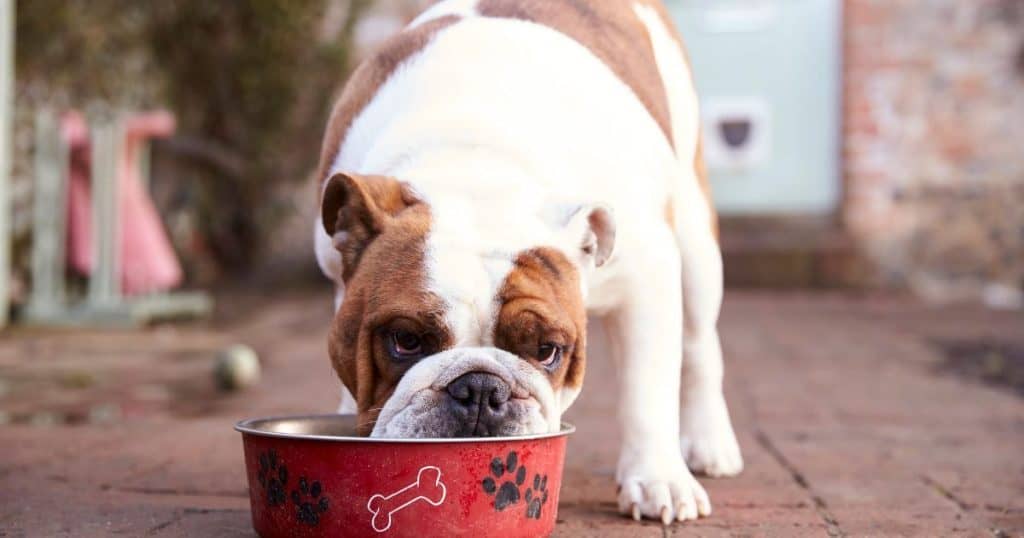What to Know
Dogs are known to be man’s best friend, and as such, we want to ensure that they are well taken care of. One of the most important aspects of taking care of your furry friend is their diet. While dogs are primarily known to be meat-eaters, it’s important to know what types of food are safe for them to eat. One food item that has been gaining popularity in recent times is anchovies.
But can dogs eat anchovies? The answer is yes, but there are some things to keep in mind before feeding your dog this tasty treat. Anchovies are a type of small fish that are packed with nutrients that can be beneficial to your dog’s health. However, not all types of anchovies are safe for dogs to eat, and it’s important to know which ones are safe and how much to feed them.
In this article, we’ll take a closer look at the topic of whether dogs can eat anchovies. We’ll explore the nutritional benefits of anchovies, the risks associated with feeding them to your dog, and the best ways to prepare and serve them. By the end of this article, you’ll have a better understanding of whether anchovies are a good addition to your dog’s diet and how to safely incorporate them into their meals.
Nutritional Value of Anchovy

Anchovies are small fish that are packed with a variety of essential nutrients that can benefit your dog’s health. Here is a breakdown of the nutritional value of anchovies:
- Protein: Anchovies are an excellent source of protein, which is essential for maintaining and repairing your dog’s muscles, tissues, and organs.
- Omega-3 Fatty Acids: Anchovies are rich in omega-3 fatty acids, which can help reduce inflammation, improve brain function, and promote healthy skin and coat.
- Vitamins: Anchovies are a good source of vitamins A, B, D, and E, which help support your dog’s immune system, vision, and overall health.
- Minerals: Anchovies are high in minerals such as calcium, iron, and selenium, which are essential for maintaining strong bones, healthy blood, and overall well-being.
Overall, anchovies are a nutrient-dense food that can provide a range of health benefits for your dog. However, it is important to feed them in moderation and to ensure that they are properly prepared and free from any harmful contaminants.
Can Dogs Eat Anchovies?

As a pet owner, you might be wondering whether your furry friend can enjoy the same foods as you. Anchovies are small fish that can be a healthy addition to your dog’s diet. However, there are some things to consider before feeding your dog anchovies.
Benefits of Feeding Anchovy to Dogs
Anchovies are a great source of omega-3 fatty acids, which have numerous health benefits for dogs. These fatty acids are essential for maintaining healthy skin and coat, reducing inflammation, and improving brain function.
In addition to omega-3s, anchovies are also high in protein and contain important minerals like calcium, iron, and phosphorus. These nutrients can help support your dog’s overall health and well-being.
Possible Risks of Feeding Anchovy to Dogs
While anchovies can be a healthy addition to your dog’s diet, there are some potential risks to consider. Anchovies packed in salt are not safe for dogs to eat, as the high sodium content can be toxic. It’s important to choose anchovies that are packed in water or oil instead.
Additionally, some dogs may be allergic to fish or have digestive issues after eating anchovies. If you notice any signs of an allergic reaction or digestive upset, it’s best to stop feeding your dog anchovies and consult with your veterinarian.
Overall, anchovies can be a healthy and nutritious addition to your dog’s diet if fed in moderation and prepared properly. As with any new food, it’s important to introduce anchovies slowly and monitor your dog for any adverse reactions. Consult with your veterinarian before making any major changes to your dog’s diet.
How to Feed Anchovy to Dogs

If you’re considering feeding your dog anchovies, it’s important to know how to do it safely and in moderation. Here’s what you need to know:
Preparation
Before feeding anchovies to your dog, make sure they are properly prepared. Fresh or frozen and thawed raw anchovies are the best options. Avoid anchovies packed in salt, as they can be toxic to dogs due to their high sodium content. Anchovies packed in oil are also not recommended, as many plant oils are high in omega-6 fatty acids which can be harmful to your dog’s health.
Serving Size
The serving size of anchovies for dogs depends on their size and weight. As a general rule, small dogs should be given no more than half of an anchovy per day, while larger dogs can be given up to one anchovy per day. It’s important to monitor your dog’s reaction to anchovies and adjust the serving size accordingly.
Frequency
While anchovies can be a healthy addition to your dog’s diet, they should not be given too frequently. A good rule of thumb is to feed anchovies to your dog no more than once or twice a week. Overfeeding anchovies can lead to an upset stomach, diarrhea, and other digestive issues.
Feeding your dog anchovies can be a great way to provide them with a tasty and nutritious treat. Just be sure to follow these guidelines to ensure your dog’s safety and health.
Conclusion
So, can dogs eat anchovies? The answer is yes, but with some precautions. Anchovies are a great source of protein, omega-3 fatty acids, and vitamins. They can provide various health benefits to your furry friend if fed in moderation.
It is important to note that anchovies should not be the primary source of your dog’s diet. They should be given as a treat or mixed with other foods to provide a balanced diet.
Before feeding your dog anchovies, make sure to remove the bones and cut them into small pieces to avoid choking hazards. Also, avoid feeding your dog anchovies that are high in salt or spices as they can cause digestive problems.
If your dog has any underlying health conditions or is on a special diet, it is best to consult with your veterinarian before adding anchovies to their diet.
Overall, anchovies can be a healthy and tasty addition to your dog’s diet if given in moderation and prepared properly. Always keep in mind that every dog is different, and what works for one may not work for another. As a responsible pet owner, it is your duty to ensure that your dog’s diet is well-balanced and meets their nutritional needs.
Related Articles:

